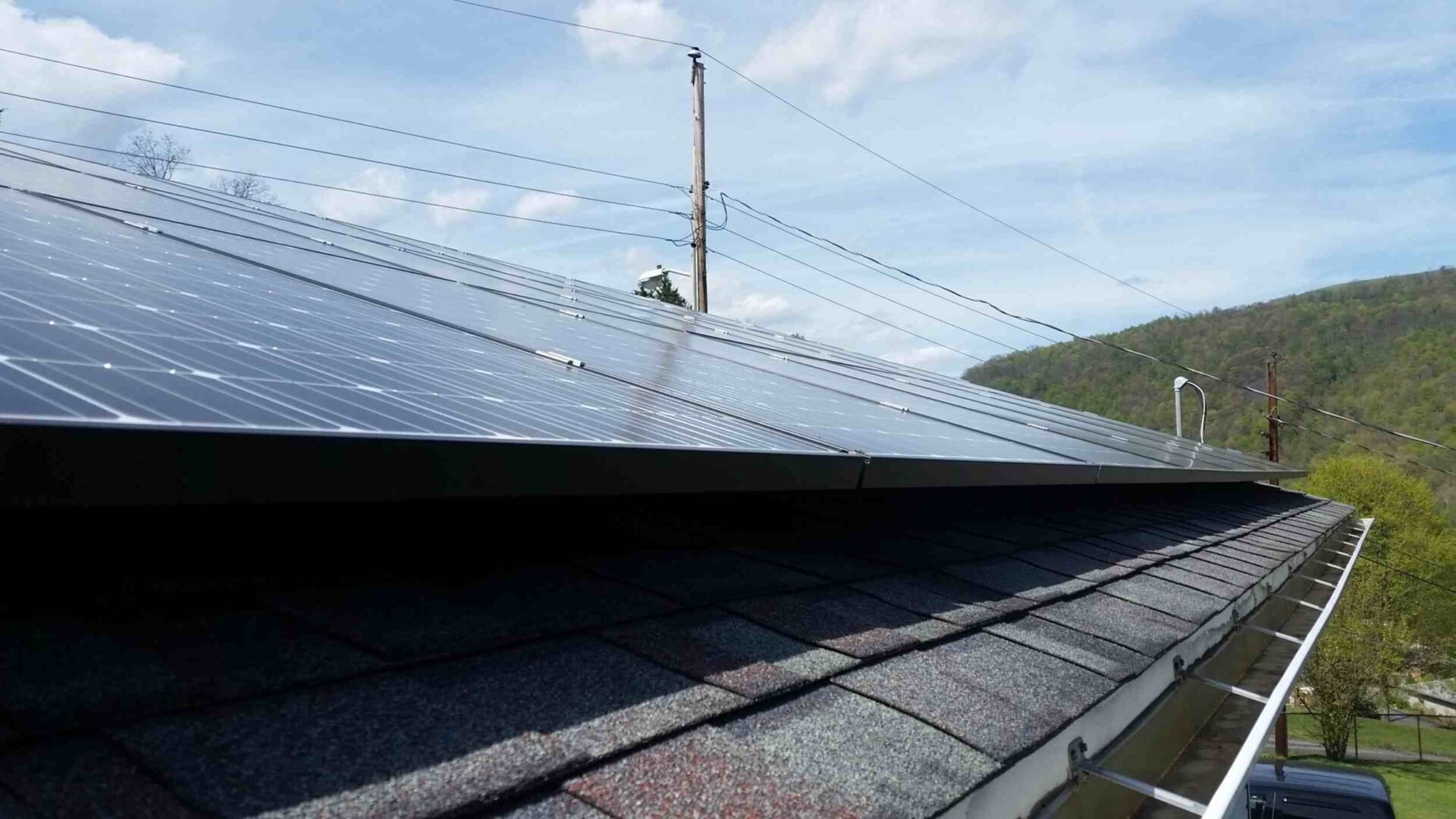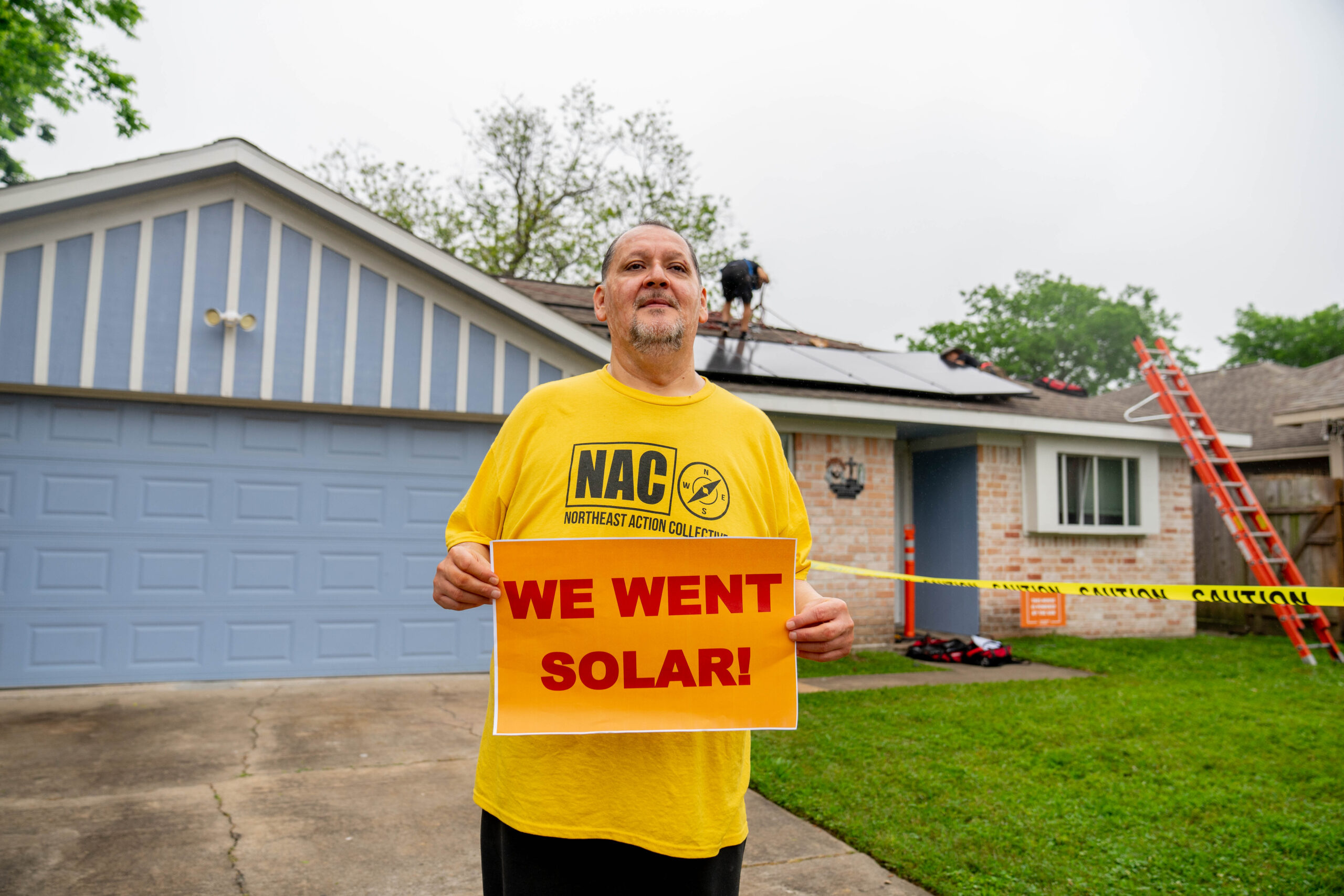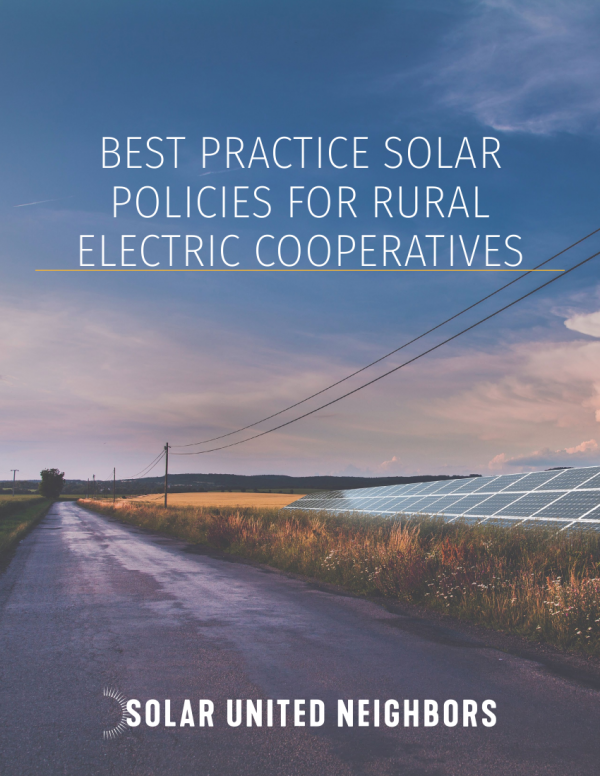Increasing solar and people power in rural electric cooperatives
- Factsheet

What are rural electric cooperatives?
Most of the utilities in the U.S. are investor-owned. They operate like businesses, with the aim of creating profits for investors. Rural electric cooperatives are different. They are nonprofit electric utilities.
A rural electric cooperative provides power to customers in its territory. These customers are not just members of the cooperative. They are owners. Each member-owner gets one vote to elect a board of directors. The board governs the cooperative, including establishing policies and procedures and hiring executive staff.

Rural electric cooperatives are also called co-ops
But don’t confuse them with Solar United Neighbors’ solar co-ops. A solar co-op is a group of neighbors who go solar together with help from SUN.
A bit of history
As recently as the 1930s, investor-owned utilities ruled the American electric grid. But they refused to serve sparsely populated areas. They could make more money in cities.
Rural electric cooperatives sprang up to bring electricity to rural areas. Today, electric cooperatives provide electricity to 12 percent of Americans. These cooperatives power 56% of the country’s land area.
An opportunity for reform
A successful cooperative requires two key elements:
- An engaged group of member-owners, and
- A board of directors that is responsive to the concerns of its member-owners.
Not all rural electric cooperatives operate optimally. Many member-owners don’t realize their own power. They don’t know they are owners of their electric company with a say in how it’s governed. As a result, many rural electric cooperatives are controlled by insiders who favor the status quo. Too many rural electric cooperatives still heavily rely on centrally-generated, coal-fired power. They have little interest in distributed renewable energy like solar.
Thankfully, rural electric cooperatives are structured democratically. The power lies in the hands of member-owners who organize and get involved. Working together, member-owners can do a lot to upgrade their cooperatives’ energy policies.

Our work with rural co-op members
Solar United Neighbors is seeing positive changes in co-ops all over the country. We’ve worked with member-owners to run for cooperative boards. We’ve helped member-owners organize to demand better solar policies.
We’re working to expand access to solar in rural areas. We work with member-owners to push for better solar policies at electric co-ops. We also promote the USDA’s Rural Energy for America Program (REAP). REAP offers grants and loans to rural small businesses and farmers who go solar.
Join a national network of member-owners.
We’re working together to improve solar policies in rural electric cooperatives all over the country. Email SUN to get involved!
Wins in Virginia: a model for other states
Increased transparency in the Rappahannock Electric Cooperative
Solar United Neighbors of Virginia is working with member-owners of the Rappahannock Electric Cooperative (REC). The campaign to increase democracy and transparency is called Repower REC.
SUN helped to push for the introduction of a state bill to require open board meetings by electric co-ops. We helped to release a Virginia electric co-op scorecard.
More solar options in the Shenandoah Valley Electric Cooperative
Solar United Neighbors of Virginia has also worked with member-owners of the Shenandoah Valley Electric Cooperative (SVEC). We’ve helped them to push for expanded solar options.
We helped the group organize a campaign to demand from their leaders:
- The protection of net metering,
- The creation of real community solar, and
- The installation of solar on the new SVEC headquarters
We also blocked a proposed increase to monthly fees on electric bills. We convened a coalition of member-owners, technical experts, and lawyers.
Learn more about our work
Download the free report: Best Practice Solar Policies for Rural Electric Cooperatives

Rural electric cooperatives should respond to the needs of member-owners. When member-owners demand better solar policies, cooperatives can make it happen. Cooperatives are encouraging customer-owned rooftop solar, integrating more solar and storage, and broadening solar access through community solar. This is happening all over the country, in Colorado, Arkansas, Texas, and beyond.
Learn how electric cooperatives can boost solar.
More resources on rural electric cooperatives
What are rural electric cooperatives?
Achieving cooperative community equitable solar sources
Power to the people
A legacy of the new deal
The member campaigns behind a Colorado co-op’s evolution
Reforming the electric co-op’s
Community power: how grassroots organizing coalitions are democratizing rural electricity
Will long-term co-op contracts give way to affordable clean energy?
Rural electric cooperative toolkit
Get the latest on solar straight to your inbox.
Fight for your solar rights.
Everyone has the right to go solar. Spread the sunshine nationwide and in your local community by taking action, joining events, and more.